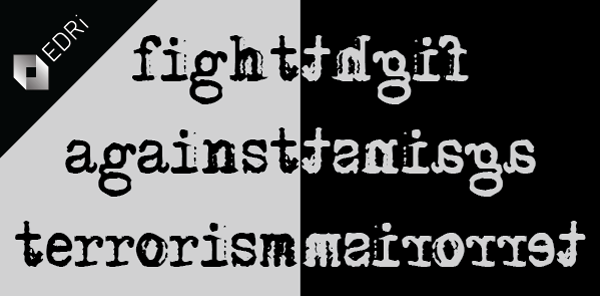Belgium Constitutional Court decision on the concept of incitement to terrorism
On the 15 March, the Constitutional Court of Belgium issued judgement 31/2018 on the action for the annulment of the law of 3 August 2016 containing various provisions in the fight against terrorism.
On the 15 March, the Constitutional Court of Belgium issued judgement 31/2018 on the action for the annulment of the law of 3 August 2016 containing various provisions in the fight against terrorism (III), introduced by the NGO Ligue des Droits de l’Homme (Human Rights League) with the Council of Ministers as the defendant. Since the applicant raised objections exclusively against the articles 2 and 6 of the law of 3 August 2016, the Court considered the appeal admissible only in so far as it was directed against these articles, and not to the entire law.
Concerning article 2 of the Law of 3 August 2016, the applicant’s complaint was based on the modification of the previous text of article 140bis of the Criminal Code. The modifications of this article had deleted the requirement that an action pose a real risk to society to be considered an incitement to terrorism. With the removal of this requirement, the article left a wide margin of interpretation, making it impossible to assess the true impact of the action as it was not needed to pose a real risk. This modification also added the possibility of an action inciting “directly or indirectly” to commit a terrorist act, an expression considered too general by the applicant, who felt that this generated great uncertainty about what might or might not be considered an incitement to terrorism. These two modifications also could lead to the criminalisation of less serious offences, without the minimum sentence being reduced.
For these reasons, Ligue des Droits de l’Homme claimed that these modifications were a violation of the principle of legality and the principle of proportionality, being that people could be accused of committing a crime without anything proving it, based on a potential risk determined without objective grounds. These modifications would deeply affect freedom of expression, freedom of association and freedom of movement, leaving citizens uncertain about which could be said or done, since an action would not need to pose a real risk to the public safety nor directly incite to commit a terrorist offence to be considered as such.
As for article 6 of the Law of 3 August 2016, the modification authorises preventive detention in cases of absolute necessity for public security in the case of terrorist offences for which the maximum applicable penalty exceeds five years’ imprisonment, whereas for other offences for which the maximum penalty does not exceed 15 years’ imprisonment, preventive detention is only possible if there are serious reasons to fear that the accused, if left at liberty, would commit new crimes or offences, evade justice, attempt to disappear evidence or collude with third parties. The applicant alleges that the classification as a terrorist offence is not an objective criterion to justify the difference made in relation to other offences.
On their side, the defendant party claimed that the modifications in both articles were founded on the protection of citizens and on the necessity of making the measures and actions to fight against terrorist offences more efficient.
The Constitutional Court carried out a thorough examination of articles 2 and 6 of the law in order to assess their compliance with the Belgian constitution, going through legal grounds including not only the Belgian constitution itself, but also international instruments ratified by Belgium (such as the European Charter of Fundamental Rights, the International Covenant on Civil and Political Rights, the Council of Europe Convention on the Prevention of Terrorism or the European Convention on Human Rights), and also decisions of the Council of the European Union in the fight against terrorism and the case law of the European Court of Human Rights.
In its judgement, the Court decided to annul article 2, 3°, of the law of 3 August 2016, considering several legal obligations, the most relevant being one included in Directive 2017/541/EU of the European Parliament and of the Council of 15 March 2017 on combating terrorism, which says that “Member States shall take the necessary measures to ensure that it is punishable as a criminal offence, when committed intentionally, the dissemination or any other form of making available to the public by any means, whether online or offline, of a message with the intention of inciting the commission of one of the offences listed in Article 3(1)(a) to (i), where such conduct incites, directly or indirectly, for example by glorifying terrorist acts, to commit terrorist offences, thereby creating the risk that one or more of those offences may be committed.” Other paragraphs of this directive also mention the need of creating a risk, such as article 10 that states that “such behaviour should be punishable when it creates the risk that terrorist acts could be committed.”
Therefore, based on the absence of this requirement in the modified article 140bis, the Court proceeded to annul article 2.3 of the Law of 3 August 2016.
As for article 6, the Court did not consider it unconstitutional and agreed with the Council of Ministers by saying that the Legislator does not disproportionately infringe the rights of the people concerned due to the special circumstances of terrorist offences, which might require stronger preventive measures that may not apply in other criminal offences.
(Contribution by Maria Roson, EDRi Intern)
Read more:
Terrorism Directive: Document
https://edri.org/terrorism-directive-document-pool/
Can we ensure EU terrorism policies respect human rights? (24.01.2018)
https://edri.org/can-we-ensure-eu-terrorism-policies-respect-human-rights/



